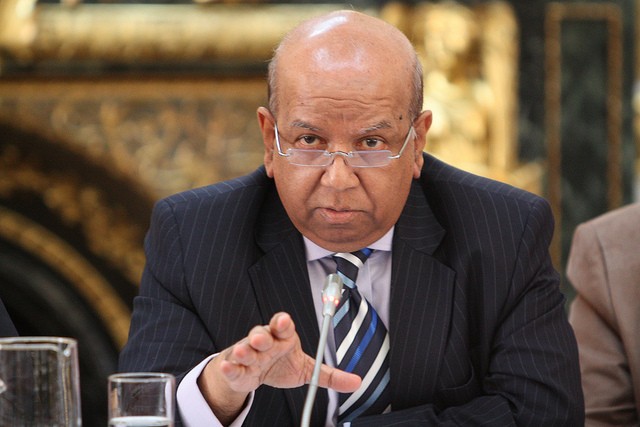Global warming and global security

By Muniruzzaman Khan
Chairman of the Global Military Advisory Council on Climate
Change
On September 27, the 195 member countries of the United Nations
Intergovernmental Panel on Climate Change (IPCC), supported by the
work of thousands of scientists from around the world, released its
Fifth Assessment Report. Even for a military man like me, the
latest scientific evidence on global warming makes for a chilling
read.
The scenarios set forth in the report indicate that if the world
continues on its current track, burning more and more fossil fuels
and increasing the levels of pollution in our atmosphere year after
year, global average temperatures could rise by four degrees
Celsius by the end of the century. That amount of warming would
cause sea levels to rise, displacing tens of millions of people
worldwide. Moreover, it would disrupt weather systems, destroying
harvests and threatening populations with droughts, floods, and
storms of ever-increasing intensity. It would also place a massive
strain on global water resources.
When I was a major general in Bangladesh's military, my job was to
avoid conflict while planning for the worst-case scenario. And,
from the perspective of the military, the consequences of global
warming constitute the worst-case scenario.
My country, Bangladesh, is a frontline state in the face of climate
challenges. It is ground zero for the effects of climate change and
the security implications they present. In Bangladesh, climate
change is not a theory, a story, or a concept; it is a way of life.
As I write, lives are being lost to rising seas, water shortages,
and the resulting diseases. Gradual and large-scale displacement of
people is taking place, and every day the threat is increasing.
Bangladesh, like India, China, and Pakistan, depends for its water
on the glaciers of the Himalayas. Those glaciers are disappearing,
and the world's most populous countries - all with significant
military capabilities, including nuclear weapons - will find
themselves facing an existential crisis if too little water is
available. We know that this will happen, and we know that people
do not always make the wisest decisions when faced with deprivation
of an essential resource.
When I meet with my colleagues at the Global Military Advisory
Council on Climate Change - generals and admirals from around the
world, all with career-long experience in military planning and
operations - I am struck by the similarity of our concerns. All
countries of the world are experiencing changes that are
destabilizing communities and increasing security concerns.
Diseases are spreading, wells are drying up, storms are smashing
cities and destroying crops, and rain is either a distant memory or
an acute danger.
Many of these effects are being felt most intensely in regions -
such as South and Central Asia, or West and East Africa - where
security is already fragile. Climate change does not respect
borders and we can already see the impact of global warming at play
in many internal crises. When a river that crosses a border or
flows through disputed territory becomes a matter of life and
death, or food prices skyrocket because a local crop has failed (or
even because a major global producer redirects its exports to its
own hungry people), conflict can start and spiral out of control
very quickly. Militaries need to plan for these scenarios and work
with politicians to ensure that they never arise.
In global security circles, we often speak of the "international
community." Climate change is the ultimate global challenge and
global threat, and the global community must meet it together. We
cannot have our separate attitudes and plans.
People are dying now. Food prices are rising now. And soldiers are
on streets around the world dealing with the effects of climate
change - from natural disasters to social unrest. We cannot risk
the local, regional, and global security threats that climate
change will generate if politicians, civil-society groups,
industry, academia, the military, and all other sectors of society
do not act together and act now.
World leaders should read what the IPCC has to say and take heed.
Climate change is the greatest global security threat of the
twenty-first century, and if we do not tackle it now, the
worst-case scenarios will be our reality.
Copyright: Project Syndicate
Here we are to serve you with news right now. It does not cost much, but worth your attention.
Choose to support open, independent, quality journalism and subscribe on a monthly basis.
By subscribing to our online newspaper, you can have full digital access to all news, analysis, and much more.
You can also follow AzerNEWS on Twitter @AzerNewsAz or Facebook @AzerNewsNewspaper
Thank you!
